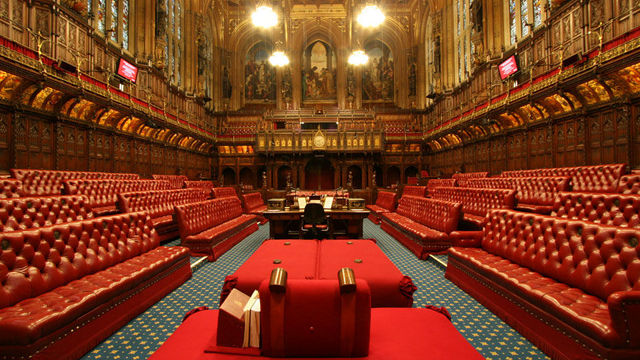14 MAY 2019 | OPINION
A proposal for the reform of the House of Lords
It has been suggested many times over the years that maintaining an unelected Upper House is no longer democratically sustainable. Some believe that the second chamber should consist entirely of elected representatives, following the tradition of the Commons, while others believe that it should simply be abolished. In my view, there are some problems with both of these positions.
It is vital in a democracy that those with the power to initiate legislation are democratically accountable to the people – which is to say that they can be both elected to govern and directly removed at the ballot box. However, the trouble with being elected is that one must periodically seek to be re-elected. We have seen over time that this can have an unfortunate effect upon the mind, particularly in the realms of the conscience.
The counterweight to the problems with elected representatives is to be found in those who are appointed. These representatives are more free to consider matters carefully and deeply, ultimately commenting and acting from that standpoint, without the need to worry about how politically popular a notion might be. There is a second, but equally vital role to be played here in our system of governance, although it is also important that those who cannot be removed at the ballot box should not be allowed to initiate legislation.
With this in mind, there would be simply no point in having two elected chambers: one holding the real power to propose and ultimately ratify new laws, and one without it. That would lead to all the problems inherent to elected representatives, while obviating any of the gains from those who are appointed. Indeed, the argument for abolition of the second chamber in its entirety would certainly be strongest in such an event – but that is not the scenario we face. There is, however, an argument for reforming the Upper House as it stands.
First, albeit almost as an aside, we should put through the constituency boundary changes that would reduce the size of the Commons from 650 to 600. We should then ensure that the Upper House can never exceed the size of the Lower while fundamentally altering its character – but not its role – which could be achieved in the following way.
In these 600 seats, we would see a 100/100/400 split. The first hundred would remain what we currently know as ‘political appointments’, in essence, but with a focus on sending very experienced people to the Upper House. These could include former Cabinet Secretaries or Prime Ministers, and other politicians and officials with a long history of outstanding service. This allows those who have retired from front-line politics for whatever reason to continue to offer their experience of how government actually functions at the top.
The second hundred would continue to consist of hereditary peers in the old tradition (expanded slightly from 92). Many in the wealthy British families of the landed gentry are brought up to inherit these roles, and taught the importance and responsibility that come with them – just as we see with the Royal Family. It remains an important tradition within our broad constitutional framework, and I see no reason to abolish it entirely. However, a hereditary peerage should become inheritable by both men and women.
The remaining 400 would be composed of highly capable, respected and experienced experts from a wide range of fields in science, business, economics, industry, academia and the arts. It would be considered a great honour within one’s field – and wider society – to be appointed as a member of the Upper House, and these figures would bring their considerable experience of reality across a wide spectrum of life to bear in considering and proposing amendments to Government legislation.
We would ensure that the Upper House does not exceed the size of the Lower by operating a ‘one in, one out’ system for the first hundred; by maintaining the current system for the second; and by imposing a 20-year term limit for the remaining 400 members. We would strive towards greater discipline and rigour by setting an appropriate floor standard for attendance levels, which if persistently not met would result in a Peer’s expulsion. To accommodate those who wish to continue to work in their field alongside their House duties, this could be set at 50%.
In this way, we would see the Upper House transformed into an organ that operates far more like a Senate, whether or not we also chose to rename it as such. It would function in a respectful and respectable manner in providing independent scrutiny of Government legislation, but with a focus on expertise as opposed to party lines. It would also offer a route to invite those with a track record of professional skill and experience to contribute to the governance of their country, providing a pathway for rewarding excellence while also taking advantage of this to the benefit of sound and sensible legislation.
It is my view that reforming the House of Lords in this manner would provide us with a stable and functioning Senate fit for the 21st Century, while also maintaining certain elements of our political and constitutional traditions that have stood the test of time and should not be lost.
As in all things, we find that balance is often the best way forward.

























